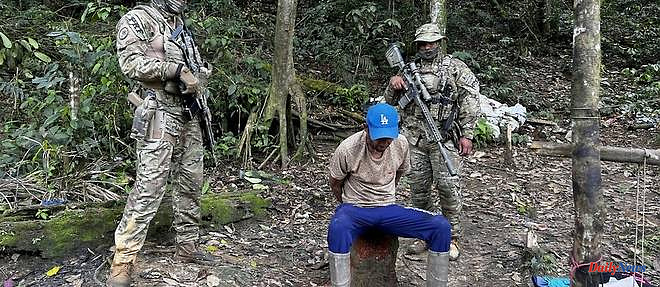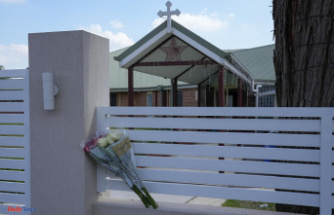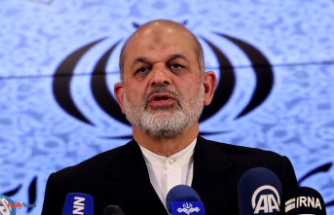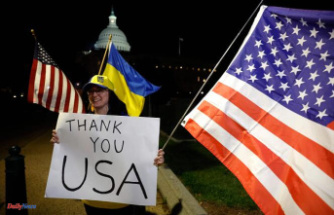A vast operation to expel gold miners from Yanomami territory is underway, but Brazil "lacks the means" to fight against the trafficking of illegally extracted gold, recognizes in an interview with AFP the new president of the organ of protection of indigenous peoples.
At 49, Joenia Wapichama became in February the first indigenous woman to chair the National Foundation of Indigenous Peoples (Funai). This plays a key role in delimiting the lands reserved for them, then monitoring and protecting them against intrusions which have increased sharply under the mandate of the far-right ex-president Jair Bolsonaro (2019-2022). .
Appointed by left-wing president Luiz Inacio Lula da Silva, this woman with long black hair often adorned with feather crowns is a pioneer in several respects. She was also the first indigenous lawyer at the Brazilian bar and the first elected deputy, in 2018.
At the head of Funai, she must manage a serious humanitarian crisis in the Yanomami reserve, the largest in Brazil, hit by diseases and advanced malnutrition. Official data show the death in 2022 of a hundred children under the age of five.
In question, the massive presence of gold washers who destroy the Amazon forest, pollute rivers with mercury, and are also accused of violence against the natives.
The Lula government ordered the opening of an investigation into "genocide" and last month launched an operation mobilizing the army to dislodge the "garimpeiros", these men who work in the illegal gold mines.
The next step after this operation, which could last several months, is "to maintain continuous surveillance and strengthen the bases of Funai" in this territory as large as Portugal located in his native state of Roraima (north), on the border with Venezuela, explains Joenia Wapichama.
In this country of continental dimensions, at least 30% of the gold was extracted illegally from January 2021 to June 2022, according to a study by the Federal University of Minas Gerais (UFMG).
"Brazil does not yet have the means to prevent illegal gold trafficking", admits Ms. Wapichama, believing that the system put in place to combat it is still "too fragile".
Especially since Funai's budget is largely insufficient, according to her: Congress has approved funds of 600 million reais (around 111 million euros) for the year 2023, but the organization has to deal with significant administrative and personnel costs.
Only a sixth of this amount can be used for fundamental missions such as the demarcation of new indigenous lands or the monitoring of existing reserves.
To operate fully, Funai would need at least twice the budget, she says.
Ms Wapichama hopes to be able to inflate this budget thanks to the Amazon Fund, supplemented in particular by Norway and Germany, and reactivated this year after its freeze in 2019 due to the controversies on the environment under the mandate of Jair Bolsonaro.
"The contribution of indigenous peoples in the fight against the effects of climate change must be rewarded", she claims, recalling that indigenous peoples are often the first ramparts against deforestation.
According to the latest census, dating from 2010, some 800,000 indigenous people live in Brazil, most of them in reservations that occupy 13.75% of the territory.
Joenia Wapichama has made it her "mission" to put Funai back on its feet after the presidency of Jair Bolsonaro, who kept his promise to "not give up another centimeter" to indigenous lands.
"He encouraged intrusions into these territories, and the natives were deprived of their rights and persecuted", denounces the former deputy, who sees herself as a "resistant".
His predecessors appointed by Jair Bolsonaro were men with no experience in indigenous issues, a soldier, then a policeman.
"We are also part of this country. We want to be treated on an equal footing," she concludes.
03/09/2023 12:38:46 - Brasilia (AFP) - © 2023 AFP












